摘要:
全球化加强了国际联系,也加剧了地缘政治碎片化,进而形成了区域贸易集团和多极世界。中国对全球治理的贡献主要集中在经济合作上,但随着其国际地位的提升,中国在全球治理方面(例如应对社会动荡、政治两极分化、民主衰落、地缘政治分裂等)扮演着更重要的角色。本文的关注点是:中国能否成为新的全球治理体系的重要推动者。
The World Needs a Form of Global Governance for All 世界需要公平的全球治理体系
Introduction 引言
Today, global governance and the world order are facing challenges from slower economic growth, global warming, pandemics, supply disruptions, food and energy insecurity, and more volatile financial markets—all coupled with geopolitical rivalry and deep divisions among great powers. These various global crises have dimmed the possibility of progress and prosperity worldwide.
今天,全球治理和国际秩序正面临着经济增长放缓、气候变化、大流行病、供应链中断、食品和能源危机、金融市场动荡、地缘政治冲突、大国博弈等全球性危机,各种全球性危机使世界的前景变得暗淡。
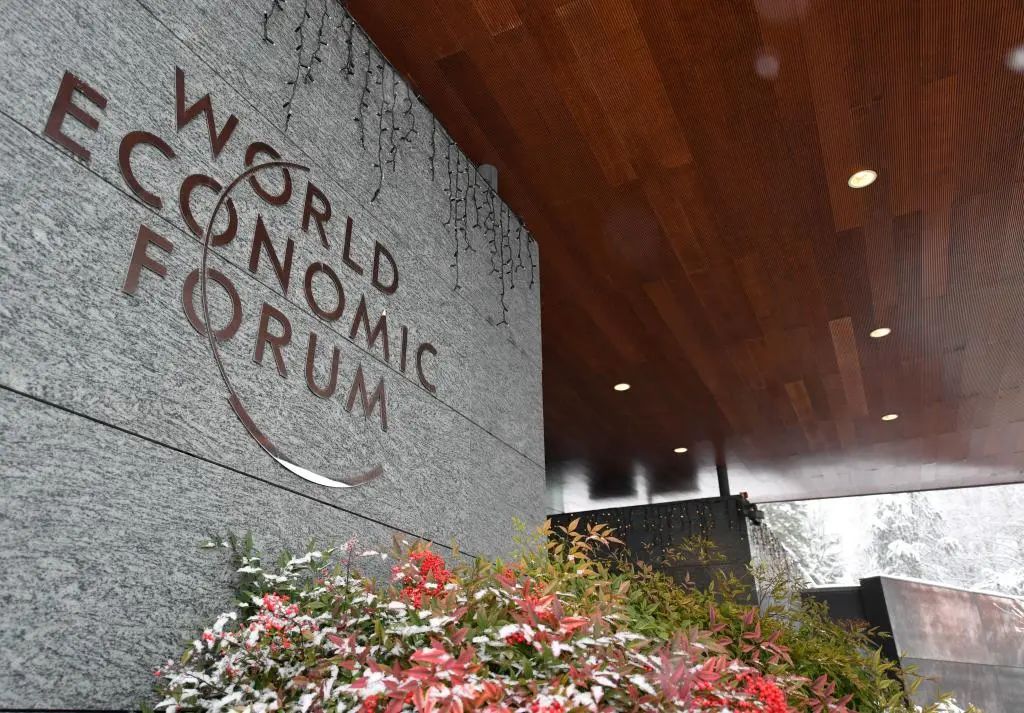
The world has also been thrust into a fraught period of geopolitical realignment due to the war in Ukraine, creating a deep divide between a united West against non-Western nations, a trajectory that could lead to a gradual demise of multilateralism and in turn that of the world order.
俄乌冲突推动了全球地缘政治格局的重构,让西方与非西方国家陷入了更严重的对立,这一趋势可能将导致多边主义的消亡,进而导致国际秩序的崩溃。
These shocks have endangered the social and political stability in some countries while weakening the ability of the world to confront its foremost long-term challenge: climate change.
全球性挑战对全球的社会和政治稳定构成了威胁,同时削弱了世界应对气候变化的能力。
Although the strategic and geopolitical rift began with trade (be it global or bilateral), Covid-19 and its lingering effects triggered and intensified US−China strategic competition and sent their bilateral relations into a tailspin.
虽然战略分歧和地缘政治分歧来源于贸易冲突,但是新冠疫情及其挥之不去的影响引发并加剧了中美竞争,使中美关系陷入了前所未有的困境。
Geopolitical rivalry deepened further when China’s policies for achieving greater self-reliance in advanced technology presented additional momentum to trends in the US and some other Western nations leading to further mistrust of China. Chinese companies were excluded from markets and prevented from installing their technologies.
随着中国推动在高科技领域的自力更生,中国与西方的地缘政治对抗正在升级。西方不仅对中国企业进行了打压与围堵,还以“国家安全”为由,禁止西方企业购买中国的高科技产品,这让中国进一步失去了对西方的信任。
As a result, the process of decoupling the economic, diplomatic, military, and ideological relations have intensified. The ensuing blame game has created enduring resentment on both sides that could influence mutual policies across a whole range of issues for the foreseeable future.
在此背景下,中国与西方在经济、外交、军事、意识形态等领域均出现了“脱钩”现象。中国与西方持久的对抗,使双方的积怨不断加深,这可能会影响未来双方在应对全球性挑战上的合作。
It was only a couple of years ago, when frequent references to G-2 (China–US) bilateral economic cooperation were the slogan of the day for policy makers and political analysts. Today—and just a short while later—the talk is about “decoupling.”
“中美经济合作”曾一度是西方的热门话题,而如今西方热衷于讨论的是“中美经济脱钩”,这表明西方的政治风向发生了明显的转变。
The Anti-China hawks are busy destroying all bridges that had linked the two countries on scientific, technological, and economic matters.
在西方鹰派的推动下,中国与美国之间的技术和经济合作面临着严峻的挑战。
The US limits on exports to China of high-end technologies and semiconductors have targeted the growth of the technological capabilities of industries that China has identified as its highest priority. Restrictions on Chinese digital and cyber telecommunication facilities are indicative of growing political tensions between the United States and China over the past few years.
为了遏制中国的技术进步,美国采取了一系列针对性措施,例如限制美国半导体制造商向中国出口高科技产品,以及禁止中国电信企业在美国境内开展业务。由此可见,中美关系处于高度紧张的状态中。
In this context, Covid-19 should be considered a major cause of severe breakdown in trust, leading to the present geopolitical contests.
新冠疫情是导致中美信任危机的主要因素,也是中美竞争的“导火索”。
This deepening division was reflected recently in a decision by the United Nations Security Council—where the five members with veto powers could no longer find a like-minded approach on important security matters. This was also the case during the meeting of G-20 Finance Ministers in Delhi in late-February, where due to objections to certain wording by China and Russia, no agreements on a final communique could be reached.
中美竞争的日益加剧,使联合国安理会成员国难以达成共识,导致决议无法通过。例如,2023年9月,在印度举办的二十国集团峰会上,中国和俄罗斯均拒绝签署峰会联合声明。
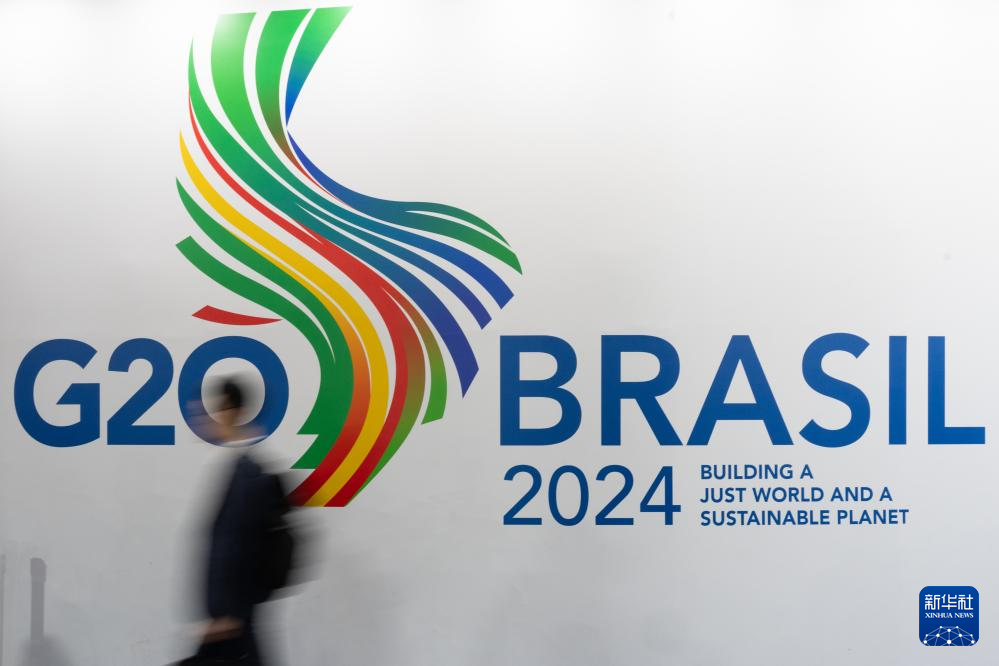
Pierre-Olivier Gourinchas, the IMF’s chief economist, described it as a sudden geopolitical shift that “reveals hidden underlying fault lines.”
国际货币基金组织首席经济学家古林查斯(Pierre-Olivier Gourinchas)认为,世界正面临一种突如其来、隐藏在断层中的地缘政治变化。
He warned of a world fragmenting into “distinct economic blocs with different ideologies, political systems, technology standards, cross-border payments and trade systems, and reserve currencies.”
古林查斯警告道,未来的世界将分裂为具有不同意识形态、不同政治制度、不同技术标准、不同贸易结算体系以及不同货币储备的经济阵营。
Elizabeth Economy, author of a new book called The World According to China, argues that Beijing is aiming for a “radically transformed international order” in which the US is in essence pushed out of the Pacific and becomes merely an Atlantic power.
任易明(Elizabeth Economy)在其最新著作《中国眼中的世界》(The World in China)中指出,中国旨在从根本上改变国际秩序,一旦成功,美国将无法在印太地区立足,甚至可能沦为一个势力范围仅局限于大西洋地区的国家。
Since the Indo-Pacific is now the core of the global economy, that would essentially make China “number one.” This is a very different game—it is now a geopolitical contest between the world’s number one power, the United States of America, and the world’s number one emerging power, China!
众所周知,印太地区是全球经济的核心,只要中国取得主导权,就能够取代美国成为世界头号强国。总之,中美竞争不同于以往的大国博弈,一边是世界头号超级大国—美国,另一边则是世界头号新兴大国—中国。
Rush Doshi, a China scholar working in the White House, makes a similar argument in his book, The Long Game, where he cites various Chinese sources in making the case that, “China is now clearly aiming for American-style global hegemony.”
美国的中国问题专家杜如松(Rush Doshi)也提出了类似的观点。他在其著作《长期博弈:中国取代美国的大战略》(The Long Game: China’s Grand Strategy to Displace American Order)中得出结论:中国正在追求美国式“霸权”。
In a Fragmented World can a Unipolar World Survive?
单极世界能否在地缘政治碎片化的情况下延续?
Events of the early 21st century, such as the unexpected attacks on the World Trade Center in NYC on September 11, 2001, marked a turning point after which the US seemed to modify its principles of democracy and freedom by practicing surveillance on its own citizens as well as the leaders and people of other countries. 事实证明,9·11事件是美国全球战略的一个转折点。该事件后,美国开始以“国家安全”为由,秘密监视各国领导人。
The financial crisis of 2008 intensified assumptions about the impending decline of America’s might, and its unipolar supremacy.
2008年的金融危机进一步印证了美国即将衰落及单极世界走向终结的观点。
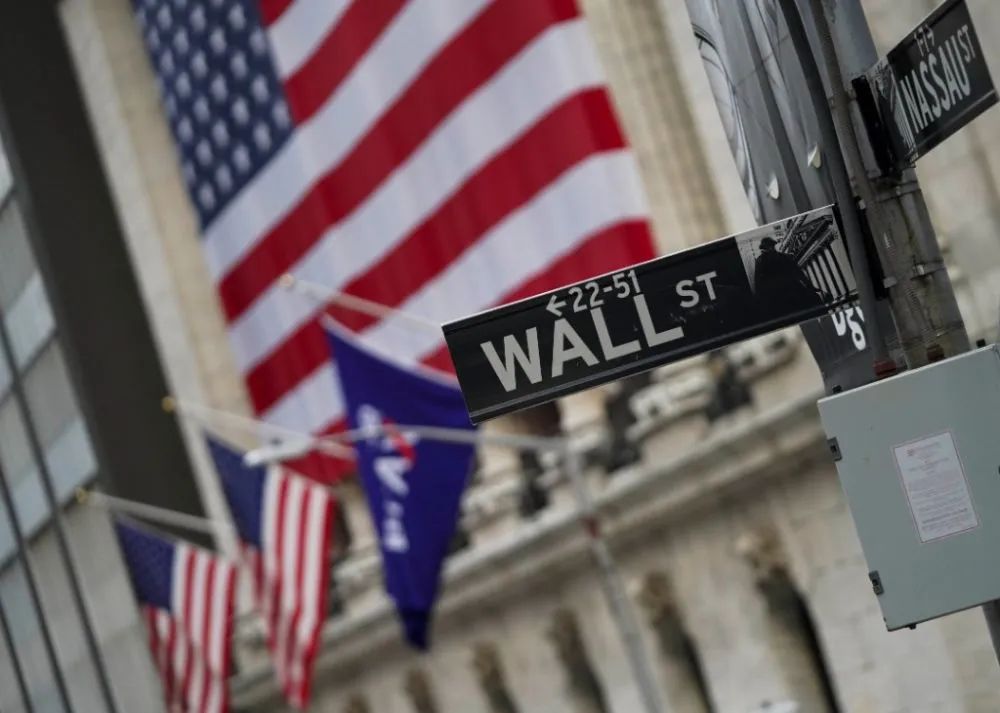
Considering this background and rapidly advancing Asian countries, discussion of America’s decline began, eliciting feelings of triumph and concern (depending on one’s preferences) among observers.
鉴于上述案例,再加上亚洲国家的高速发展,“美国衰落论”逐渐流行,这让许多国家产生了复杂的情绪。
It is worth mentioning that much of the security and institutional architecture of the current world order emerged as World War II ended.
当前的国际秩序架构是在第二次世界大战后形成的。
In the aftermath of World War II, the UN, the World Bank, and the IMF were founded, with their headquarters in the US. The General Agreement on Tariffs and Trade (GATT) came into force in 1948, NATO was created in 1949, the US-Japan Security Treaty was signed in 1951, the European Coal and Steel Community (the predecessor of the EU), was also founded in 1951.
第二次世界大战后,联合国、世界银行、国际货币基金等国际组织相继成立。关税与贸易总协定于1948年生效;北约于1949年成立;《美日安保条约》于1951年签署;欧洲煤钢共同体(欧盟的前身)也于1951年成立。
After the end of the cold war, rival Soviet-backed institutions such as the Warsaw Pact collapsed, and NATO and the EU expanded up to the borders of Russia. China joined the World Trade Organization in 2001.
冷战后,华约解散,北约不断向俄罗斯边境扩张。中国于2001年加入了世界贸易组织。
The question now is whether Russia’s and China’s desire for a “new world order” will also need a war to come to fruition and is Ukraine’s destiny a decisive turning point toward that objective?
目前的关键问题是,中国或俄罗斯是否会诉诸武力来推动新的国际秩序的建立?俄乌冲突是否会成为实现这一目标的决定性因素?
Barely recovered from the crises of the early 21st century, the US upheld the desire to maintain its position as the world’s only superpower even with the cost of undermining the power of its competitors. These “efforts” have been making the world a more turbulent place in recent years.
美国为了维持其世界唯一超级大国的地位,即使仍深受全球性挑战的影响,也不惜与其竞争对手展开激烈的较量,这导致世界变得更加动荡不安。
After the 9/11 attacks on New York and Washington (implicated Osama Ben Laden), NATO invoked Article 5—its mutual-defense clause—and invaded Afghanistan demonstrating America’s willingness and ability—if required—to transform the world by force.
美国于2001年9月11日遭遇大规模恐怖袭击后,启动北约集体防御条款,出兵阿富汗,这表明美国有诉诸武力改变世界的能力和意愿。
Unanimity within the G-7 and EU to assist Ukraine in its conflict with Russia is yet another example of the “America is back again” slogan in the global governance.
此外,在俄乌冲突期间,七国集团和欧盟共同帮助乌克兰对抗俄罗斯,是美国重返国际舞台的又一例证。
In recent years, apprehensive about the rise of China, the US has become increasingly determined to stop China as a rival. In doing so, the US has chosen a more protectionist policy, prioritizing self-sufficiency over global inter-dependency.
近年来,由于对中国崛起的担忧,美国不断加大对中国的打压力度。总体来看,美国对中国的打压手段具有明显的贸易保护主义色彩,即把美国的利益置于全球利益之上。
Could this new paradigm shift give rise to a reconsideration of multilateral agreements, or lead to a goal of unilateral political superiority at any cost? What will this mean for the current model of global governance? Could it feed into the widespread doubt about the adequacy of the present world order?
这是否会引发对多边贸易协定的再思考?这是否会导致单边强权政治的横行?这对传统全球治理体系意味着什么?这是否会加剧国际社会对现行秩序的质疑?
In contrast, China has used its trading power to expand its global influence. In 2013, Beijing launched the Belt and Road Initiative (BRI) to fund infrastructure that stretches into Central Asia, Africa, Europe, and the Americas.
中国一直在通过贸易扩大其全球影响力。2013年,中国启动了“一带一路”倡议,旨在为中亚、非洲、欧洲、拉丁美洲等“一带一路”沿线国家的基础设施建设提供资金。
In 2015 China also launched the Asian Infrastructure Investment Bank (AIIB). The AIIB is a multilateral financial institution that invests in infrastructure projects and other productive sectors across Eurasia.
2015年,亚洲基础设施投资银行(亚投行)正式成立,亚投行是首个由中国倡议设立的多边金融机构,重点支持在基础设施及其他生产性领域的投资。
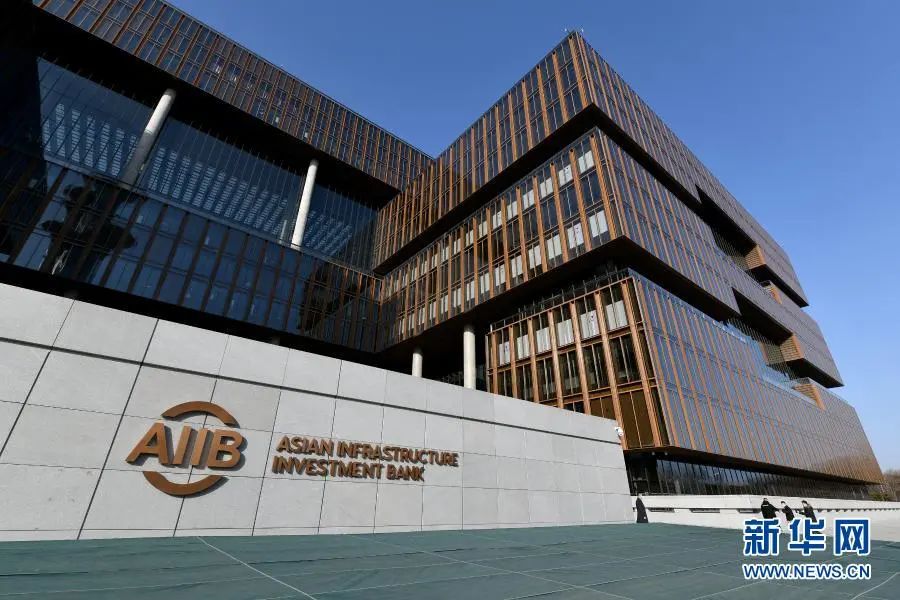
In addition, the establishment of the Regional Comprehensive Economic Partnership, a vast new free-trade area in the Asia-Pacific with several American strategic allies such as Japan and Australia, created easy accesses to the Chinese market.
此外,区域全面经济伙伴关系协定的启动,为全球资本进入中国市场创造了有利条件。该协定是由中国、日本、韩国、澳大利亚、新西兰和东盟十国共同签署的一项自由贸易协定,亚太地区乃至世界上最大的自由贸易区由此诞生。
Since then, as part of its goal to return China to its former glory, the government has adopted a global governance strategy focusing on four major issues: global health, Internet governance, climate change, and development finance.
为了让中国重现昔日的辉煌,中国提出了自己的全球治理理念,其内涵主要有4个方面:全球健康、网络治理、气候变化和开发性金融。
In October 2017, plans to make China a “cyber superpower.” were launched, helping the country to become a leader in the global Internet governance by promoting the idea of “cyber sovereignty.”
例如,在网络治理方面,中国通过推广“网络主权”理念,打造全球网络治理领导者的形象;
On climate change, China has shifted from resisting international cooperation on climate change to supporting such cooperation. China’s activism at home has been matched by new activism on the global stage, where it has worked with existing international institutions and has been a leader on climate change. In 2015, the United States partnered with China to call for a strong, legally binding treaty that ultimately became the Paris Agreement. Now Beijing is trying to save the agreement as others, including the United States, are shifting their focus.
再例如,在气候变化方面,中国是全球应对气候变化的领导者之一,一直与相关国际组织就气候变化展开合作,对全球气候变化治理做出了重要贡献。2015年,中国和美国计划达成一项具有法律约束力的气候协议。2016年,中美两国发表《中美元首气候变化联合声明》,随后签署《巴黎协定》。美国于2019年退出《巴黎协定》后,包括中国在内的许多国家曾设法挽救该协议。
More subtly, China has moved on a series of foreign policy initiatives to create alternative structures for international cooperation, particularly with the developing countries. In conflict resolution, China’s 12-point Position Paper (released on Feb 24, 2023) outlines a political settlement of the Ukraine crisis.
值得注意的是,中国采取了一系列外交行动,试图建立新的国际合作框架。在俄乌冲突爆发一周年之际,中国发表“关于政治解决乌克兰危机的中国立场”(“十二点声明”),呼吁通过政治解决俄乌冲突。
Citing positions that China has long held in international fora, China offers several useful insights into the role it wishes to play in the international arena as well as its positioning with respect to global dynamics of power. In the context of this plan, China invites all countries to strictly uphold the sovereignty and independence and territorial integrity of all and choose dialogue and negotiation in resuming peace talks. China signaled its willingness to continue to play a constructive role in these negotiations. The document openly condemns the use of nuclear weapons and calls for a military de-escalation between the warring parties.
该声明阐述了中国希望在俄乌冲突中发挥的作用及其一贯恪守的原则,例如尊重各国主权、停火止战、启动和谈等。中国在“十二点声明”中表达了为和谈提供帮助的意愿,同时反对使用或威胁使用核武器,并敦促俄乌双方缓和局势。
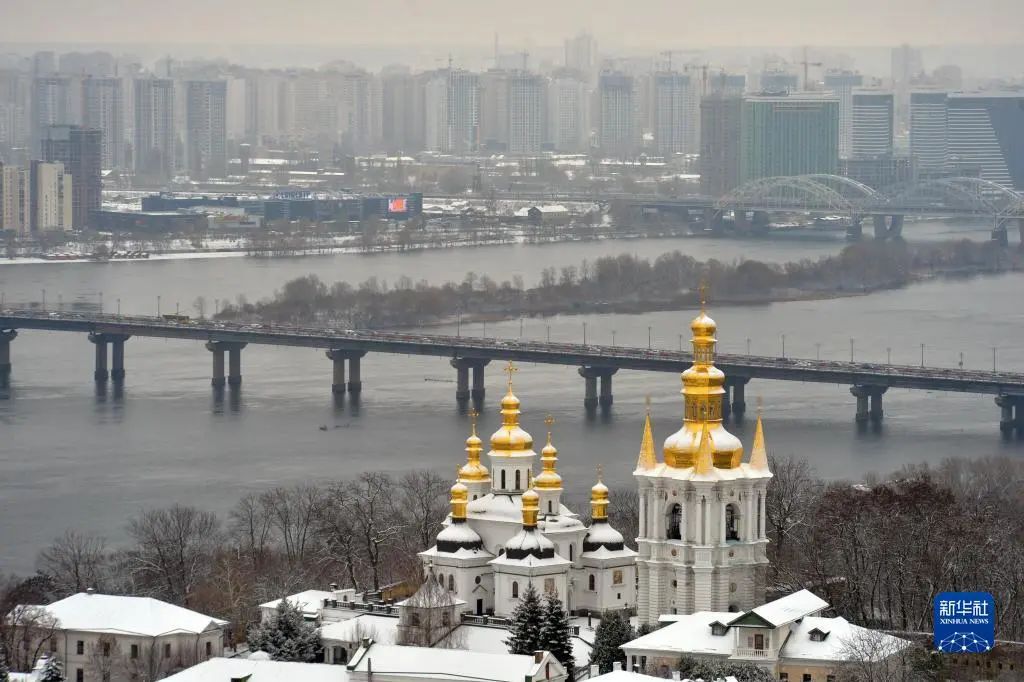
President Volodymyr Zelensky welcomed this paper as “an important signal that China’s willingness to participate in a peace formula” and volunteered to meet with President Xi. On 26 April, President Xi Jinping spoke with President Volodymyr Zelensky on the phone. The two sides exchanged views on China–Ukraine relations and the Ukraine crisis.
乌克兰总统泽连斯基对该声明表示欢迎,认为这是中国同意参与“和平方案”的重要信号,并表示将与中国国家主席习近平会面。2024年4月26日,中乌双方就中乌关系和俄乌冲突交换了意见。
Can Globalization Be the Savior of a Fragmented World?
全球化能拯救当今这个支离破碎的世界吗?
Today, notions of global governance, globalization and world order have become rather closely connected. Rapid globalization for decades, resulted in increasing economic integration and inter-dependence among countries, leading to the emergence of a global marketplace.
全球治理、全球化、国际秩序等概念紧密相连。在过去几十年的高速全球化进程中,各国的经济依存关系已经构成盘根错节的利益连体,进而催生了全球市场。
Multinational companies manufactured products in many countries and sold them all over the world. Money, technology, and raw materials—breaking international barriers—permitted developed economies to integrate with less developed economies through foreign direct investment, elimination of trade barriers, and economic reforms.
跨国公司在全球各地建立了生产基地,并实现了产品全球化布局。资金、技术和原材料的自由流动,使发达经济体能够通过外国直接投资、消除贸易壁垒、经济改革等途径与欠发达经济体融为一体。
However, globalization is being challenged by widely differing expectations, standards of living, cultures and values, legal systems as well as unexpected global cause and effect linkages.
然而,全球化正受到不同的期望、生活水平、文化价值观、法律制度以及意想不到的因果关系的冲击。
Globalization has given rise to inequality, growing social divisions and a deepening economic disparity with an end game of an unavoidable backlash most visibly through political manifestations around the globe.
全球化导致了不平等、社会分化和经济差距的扩大,造成了“逆全球化”的客观消极后果。最明显的表现是民粹主义、极端主义和民族主义的兴起。
It has prompted populists, extremists, and nationalists around the world to condemn multilateralism, globalization, and the current world order as the sources of inequality.
主流观点认为,多边主义、全球化和现行秩序是不平等的根源。
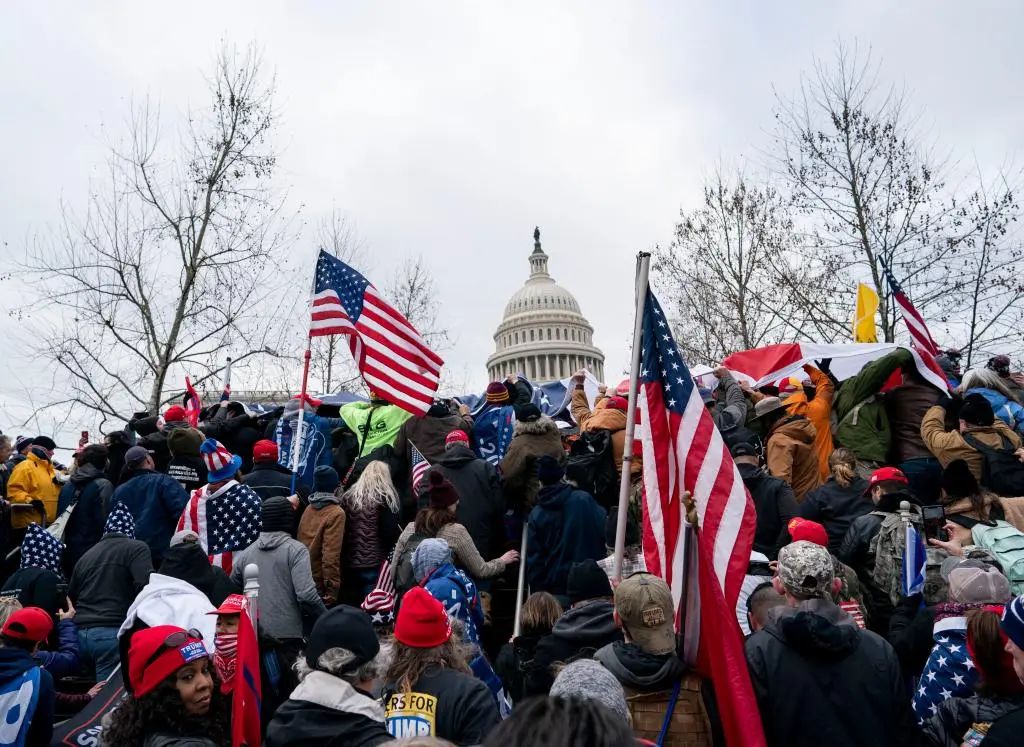
Many analysts believe that rising populism in the US and Europe is a result of and is enhanced by the persistently widening income and wealth gap due to the disparate gains between capital and labor.
有分析指出,民粹主义之所以在美国和欧洲兴起,是因为资本与劳动力之间的矛盾过大,其后果是导致贫富差距的持续扩大。
These are the root causes that continue to feed populist anger against elites by electing Donald Trump to the US presidency and the UK’s vote to leave the European Union.
可以肯定的是,特朗普当选总统和英国脱欧这两件事与民粹主义不无关系。
Populism and nationalism were driving policy initiatives behind “make America great again” and the Brexit campaign that focused on resurgence of national lost industries and traditional jobs.
增加就业机会及重振制造业,正是民粹主义的基本诉求。
In such circumstances, fake and alternative truths influence people’s opinion, and the social media has become a dominant factor in shaping the dynamics of the world politics and social order of the day.
此外,一些极端民粹主义者利用社交媒体,散布虚假信息来扭曲公众舆论。因此,社交媒体已经成为塑造国际政治和影响社会秩序的主要手段。
Taking advantage of the perceived and actual flaws in the current world order and governance, and their impact on the combination of institutions, ideas and power structures, the competitors joined forces determined to create a new world order that would better accommodate their differing interests.
国际秩序挑战者利用全球治理体系的缺陷,以及自身对国际秩序的影响力,试图建立一个能够调和不同利益冲突的新的国际秩序。
Two features of the current world order are of their particular concern—“unipolarity” and “universality.” To put it more simply, they believed that the current arrangements gave America too much power.
这些挑战者对国际秩序的两个特征尤为反感,即“单极化”和“普适性”,换言之,国际秩序赋予了美国过多的特权。
For more than two millennia, China had seen itself as one of the dominant actors in the world. The concept of “zhongguo”—the Middle Kingdom, as China calls itself—is not simply geographic.
两千多年来,中国一直认为自己是世界的中心。“中国”不仅代表地球中心这个地理概念,还意味着世界的文化、政治和经济中心。
It implies that China is the cultural, political, and economic center of the world. This Sino-centrist worldview has in many ways shaped China’s outlook on global governance—the rules, norms, and institutions that regulate international cooperation.
以中国为中心的世界观在多方面塑造了中国的全球治理观。
Yet China also now seeks to shape the global governance system more actively, to advance its model of political and economic development. This development model is characterized by extensive state control over politics and society, and a mix of both market-based practices and statism in core sectors of the economy.
目前,中国正在积极参与及塑造全球治理体系,也在发展自己的政治经济模式。中国的政治经济模式主要体现在对政治和社会的严密控制,以及市场经济与国家干预的相结合。
President Xi Jinping has often called for more shared control of global governance. He has declared that China needs to “lead the reform of the global governance system with the concepts of fairness and justice.” The terms fairness and justice signal a call for a more multipolar world, one potentially with a smaller role for the US in setting international rules.
中国一直呼吁加强全球治理的公平性和正义性,并倡导以公平和正义的理念引领全球治理体系的改革。“公平”和“正义”这两个词反映出中国对多极世界的追求,即在制定国际规则方面,美国不具有绝对话语权。
Joining forces with Russia, the two countries have become determined to change “unipolarity” in global governance. Fyodor Lukyanov, a Russian foreign policy thinker, believes that unipolarity “gave the United States the ability and potential to do whatever it saw fit on the world stage.”
随着中国和俄罗斯在全球舞台上的崛起,两国对美国主导的全球治理体系提出了挑战。俄罗斯知名国际关系专家卢基扬诺夫(Fyodor Lukyanov)认为,单极秩序赋予了美国在世界舞台上随心所欲的能力和潜力。
He argues that “the new age of American hegemony was ushered in by the Gulf War of 1991—in which the US assembled a global coalition to drive Saddam Hussein’s Iraq out of Kuwait.”
海湾战争是美国霸权达到顶峰的表现,在这场战争中,美国通过各种手段迅速建立起强大的反伊联盟,扮演了盟主的角色。
The Gulf War was followed by a succession of US-led military interventions around the world—including in Bosnia and Kosovo in the 1990s. NATO’s bombing of Belgrade, Serbia’s capital, in 1999, has long formed part of Russia’s argument that, “NATO is not a purely defensive alliance.”
海湾战争后,美国频繁在全球各地发动军事干预行动(例如美国对波黑和科索沃的军事干预)。在俄罗斯看来,北约轰炸南联盟就足以证明北约并非单纯的“防御性组织”。
America’s defeat in Afghanistan, symbolized by the chaotic withdrawal from Kabul in the summer of 2021, has given the Russians hope that the US-led world order is crumbling.
美国于2021年从阿富汗大规模撤军,标志着美国在阿富汗的战略性失败,也标志着美国主导的国际秩序正在崩塌。

Lukyanov argues that the fall of Kabul to the Taliban was “no less historical and symbolic than the fall of the Berlin Wall.” Influential Chinese academics are thinking along similar lines.
卢基扬诺夫指出,阿富汗落入塔利班之手与柏林墙的倒塌具有同等的重要意义。中国国际关系界也持类似的观点。
Yan Xuetong, Dean of the School of International Relations at Tsinghua University in Beijing (President Xi’s alma mater), writes that “China believes that its rise to great-power status entitles it to a new role in world affairs—one that cannot be reconciled with unquestioned US dominance.”
例如,中国国际关系专家阎学通认为,以美国为首的单极秩序正在逐渐消失,取而代之的将是一个以中美为核心的多极秩序。
Like Lukyanov, Yan believes that “the US-led world order is fading away. In its place will come a multipolar order.” The echo of this assumption could be heard from President Xi when he referred in some speeches that “the East is rising, and the West is declining.”
就连中国国家主席习近平也暗示了这一点,表示“东方正在崛起,而西方正在衰落”。
Since becoming China’s Communist Party leader a decade ago, Xi has adopted a more assertive stance on foreign relations. In October 2017, he told the party’s 19th congress “it is time for us to take center stage in the world.” During the 20th Congress meeting, he codified the new foreign policy doctrine with a 24-character formula that included the “dare to fight” phrase mirroring Deng Xiaoping’s strategy.
自习近平成为中国领导人以来,中国采取了更加自信和主动的外交政策。例如,2017年10月,习近平总书记在党的十九大报告中明确指出,“新时代是中国日益走进世界舞台中央,不断为人类作出更大贡献的时代”。
For Russia and China, the creation of a new world order is not simply a matter of raw power; it is also a battle of ideas. While the Western liberal tradition promotes the idea of universal human rights, Russian and Chinese thinkers make the argument that different “civilizations” should be allowed to develop with different doctrines.
对于俄罗斯和中国而言,建立新的国际秩序不仅仅意味着权力的较量,还意味着思想的碰撞。西方倡导普世人权,俄罗斯和中国则认为,不同的文明应以不同的方式发展。
In a similar vein, Beijing argues that a fusion of Confucianism and Communism means that China will always be a country that stresses collective rather than individual rights.
此外,中国还强调,马克思主义与儒学的融合意味着,中国将成为一个强调集体权利而并非个人权利的国家。
The new world order that Russia and China are demanding would be based on distinct spheres of influence. The US would accept Russian and Chinese domination of their neighborhoods and would abandon its support for democracy that might threaten other regimes.
在俄罗斯和中国谋求的新秩序中,两国有着各自不同的势力范围。美国允许俄罗斯和中国主导其周边地区,并放弃推动全球民主化。
New Paradigm—New Global Governance? Problems of the Transition Period and the Balance of Power
全球治理转型面临的挑战
Multilateralism, in both its global and national versions and across the whole range of issues, is also under severe strain and may be subjected to continued interpretation, revision, and rewriting.
任何形式的多边主义以及与多边主义相关的议题,均面临着众多前所未有的挑战。在此过程中,多边主义会不断受到质疑,可能会因此而发生改变或流产。
An inward-looking US, a militarized Europe, and a stagnant Japan and Korea could provide fertile ground for the rise of economic giants such as China and India in Asia as well as the emergence of several developing states from Mexico to Malaysia and Indonesia, which may wish to take leading positions in the world of the future.
美国朝内向型国家的转变、欧洲军事化程度的日益提高,以及日本和韩国经济的停滞不前,可能会给中国、印度、墨西哥、马来西亚等新兴经济体的崛起提供契机。
Taking this development into account, along with the economic and financial powers of some multinational companies and private sectors, any new model of governance will be subject of scrutiny and doubt.
这种情况一旦长久发展下去,上述国家可能会在世界舞台上占据举足轻重的地位。此外,跨国公司也是一个不容忽视的因素。综上所述,新的全球治理观受到质疑也就不足为奇了。
With the expectation of a US demise, the search for a new balance of power, manifested in the active forming of various alliances and coalitions of countries and their associations, has already begun.
随着“美国衰落论”的兴起,新的国际秩序正在形成,这主要反映在各种区域联盟和国际组织的出现。
Changes in the global balance of economic power could create objective conditions for a reorganization of the existing world order. However, it will not necessarily result in an automatic change in military and political balances.
全球经济力量的变化将为国际秩序的重构创造客观条件,然而,这并不一定会导致全球军事和政治格局的变化。
In this sense, economics replaces politics as a driver of global change.
从这个意义上说,经济取代了政治,成为国际秩序变革的驱动力。
If and when the US loses its privileged position as the world primary power, needs will arise for a comprehensive search for new patterns. A different and new world order may result in a world without a hegemon, but with several centers of power and influence, of which the United States is likely to be the most important. But it would only be “first among equals” and not a superpower.
当美国失去守成大国的地位时,全世界就应该开辟新的全球治理体系。在非单极的国际秩序中,不存在霸权国家,但存在多个权力中心,而美国就是其中一个,但其与其他权力中心处于平等地位。
The US at present, is involved in too many aspects of global leadership and this is a challenge not easy to overcome. It is impossible to predict where the world will be twenty years from now, but the question remains—can the “sunset” of the USA turn into a new “sunrise” for others?
然而,目前距离美国崩盘仍为时尚早,撼动美国在国际事务中的主导地位也绝非易事。虽然我们无法确切地预测20年后的世界,但是美国的衰落是否意味着其他国家的崛起?
The shape of a new world order in future will strongly depend on who will lead in technology, especially if innovations are translated into military supremacy.
毫无疑问,未来国际秩序的演变将由全球科技实力最强的国家主导,尤其是那些能够将科技创新成果转化为军事优势的国家。
Today developing world such as India invests more and more into technology with the hope to have a seat at the global governance table. For them, a credible new global order would entail:
今天,印度等发展中国家正在大力投资科技创新,希望在构建新的全球治理体系上发挥重要作用。对于这些国家而言,新的国际秩序需要具备以下要素:
1.A solid balance of power and interests.
第一,各国之间实现权力和利益的平衡;
2. New models of a supranational government and coordination of global processes.
第二,由新的超国家机构负责协调全球治理合作;
3. New ideologies to replace the idea of the universal democracy at all levels with a new paradigm and new cooperation patterns.
第三,以新的范式、合作模式以及意识形态来取代民主价值观;
4. Avoiding fragmentation that could slow increased global integration and foster localization in production, trade, finance, and technology.
第四,防止地缘政治碎片化,推动全球一体化进程,并促进生产、贸易、金融和技术的本土化。
At the 2023 World Economic Forum’s (WEF) annual meeting in Davos, IMF chief economist Gita Gopinath came out swinging and alerted business leaders and government functionaries of the dangers of fragmentation and deglobalization.
在2023年达沃斯世界经济论坛年会上,国际货币基金组织首席经济学家戈皮纳特(Gita Gopinath)强调,要重视地缘政治碎片化和逆全球化的危险。
IMF Managing Director Kristalina Georgieva went further. On February 5, on CBS’ 60 Minutes program she said that “if world trade slips, global GDP would decrease by USD 1.5 trillion or 1.4%, and this could be as high as 3% in Asia.”
2024年2月5日,国际货币基金组织总裁格奥尔基耶娃(Kristalina Georgieva),在美国哥伦比亚广播公司新闻节目《60分钟》中表示,如果全球贸易出现严重萎缩,全球生产总值将减少1.5万亿美元,即全球生产总值减少1.4%,而亚洲生产总值的降幅可能将高达3%。
Conclusion结语
Globalization has given rise to significant connections in the world but also a greater risk of fragmentation of international relations.
全球化使世界联系更紧密,但也加剧了地缘政治碎片化的风险。
While some may consider the phrase “fragmented globalization” a dichotomy, but it could lead to strengthening of regional trade blocks and with like-minded partners leading to a multipolar world and not necessarily a “de-globalized” one.
有观点认为,当今世界具有两大特征:地缘政治碎片化和全球化,这将推动多极世界的形成(例如催生由志同道合国家组成的区域贸易集团),而并非推动逆全球化。
Globalization is overwhelmingly a technological and economic process while fragmentation is primarily political in nature. Even though they take place in different spheres, it is often assumed that there is a relationship between the two.
全球化是以经济和技术全球化为主要特点的,与地缘政治碎片化存在本质上的不同。即便如此,主流观点仍认为,两者之间存在某种联系。
Trade systems are at risk of fragmentation not only due to geopolitical rivalries, but also because they are not being updated to meet the biggest challenges facing humanity from climate change to future pandemics.
全球贸易体系正面临分裂的风险,这不完全是因为地缘政治竞争,主要还是因为全球贸易体系缺少革新,难以应对气候变化、大流行病等全球性挑战。
Rebuilding the global economy after Covid-19 will require rebuilding trust in free trade and support of increased capital flows, especially for developing and emerging nations.
如果要推动全球经济从新冠疫情中复苏,就必须促进资本流动,并重建新兴经济体对全球贸易体系的信任。

。
China’s contribution to global governance has so far focused mainly on economic cooperation. However, along with its rising international status, China has begun to shoulder more responsibilities in narrowing the gap between rich and poor, promoting South-South Cooperation, and other global affairs. These efforts have played a key role in lifting many out of poverty over the years.
在过去,中国对全球治理的贡献只集中在经济合作上。然而,随着中国国际地位的稳步提升,中国开始在缩小全球贫富差距、促进南南合作等国际事务上承担更多的责任,其为全球减贫事业做出的贡献引发世界瞩目。
As its economy grows, and as it was mentioned earlier, Beijing is taking a more active role in global governance, signaling its potential to lead and to challenge existing institutions and norms.
随着中国经济的持续高速发展,中国在全球治理中扮演着愈发重要的角色,如今已成为全球治理的重要参与者。
China has become a powerful force in global governance. Increasingly, however, its efforts appear to be deepening divides with other countries, particularly democracies that are committed to existing norms and institutions.
然而,中国在参与全球治理的过程中与拥护现行秩序的国家产生了更大的分歧,这可能会影响应对全球性挑战合作。
Ultimately, this divide could make it harder for states to collaboratively address major international challenges, such as global health, climate change, and development finance that require engagement from all nations, in the form of international cooperation to rebuild the rules-based environment, as well as domestic policies that minimize the uncertainties associated with country-specific political and economic risks.
这种合作需要各国以国际合作的形式参与国际秩序的重建,以及通过国内政策尽可能降低与相关合作带来的政治和经济风险。
As a recent McKinsey Global Institute report reminds us, “no region is close to being self-sufficient.”
麦肯锡全球研究所(McKinsey Global Institute)最近指出,全球没有任何地区能够在贸易上实现自给自足。
Meanwhile, environmental collapse also threatens to exacerbate social tensions and political polarization, democratic decline, and geopolitical splits that drive a wedge between and within countries.
此外,环境崩溃也可能会加剧社会动荡和政治两极分化、民主衰落以及地缘政治碎片化,进而在国家之间和国家内部造成裂痕。
Given the fact that the rare confluence of geopolitical, economic, and technological forces now confronting the world may reverberate for generations, I wish to end this article with a quote from Jie Dalei, Professor of International Studies at Peking University: “One does not have to change [or] become the other, to be able to coexist. In fact, the existence of multiple competitive ideologies has been normal throughout most of human history. The dominance of one ideology in the global marketplace of ideas is the exception rather than the rule.”
当前,全球治理体系正在发生深刻变革,全球地缘政治、经济和技术出现了相互交融的趋势,其后果和影响可能会延续几代人。北京大学国际关系学院副教授节大磊认为,要实现共存,一方无需改变另一方,也无需加入另一方。对于人类历史的大部分时段来说,不同意识形态之间的共存和竞争其实是常态,而某种意识形态占据主导地位则是例外,而不是常态。
★本文作者:
梅里·马达沙希(Mehri Madarshahi) 华南理工大学公共政策研究院(IPP)兼职教授联合国教科文组织(UNESCO)国际创意与可持续发展中心咨询委员

